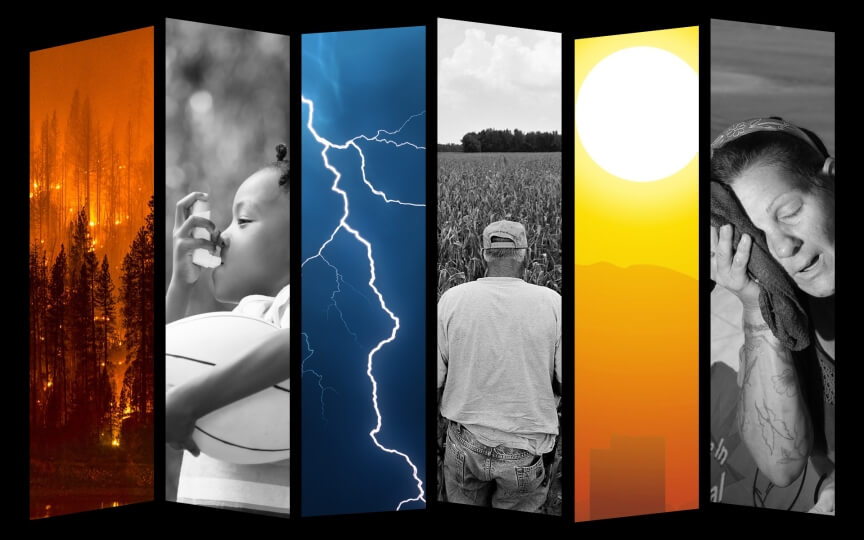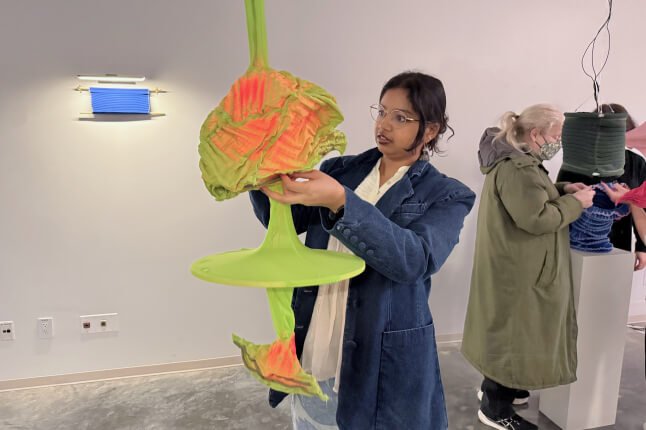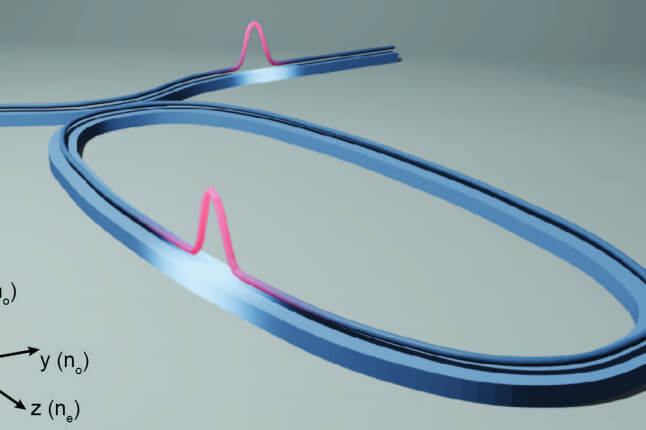News
Six projects led by faculty from the Harvard John A. Paulson School of Engineering and Applied Sciences (SEAS) are among the first cohort of awards announced by the Salata Institute Seed Grant Program, launched in April to enable new interdisciplinary research in climate and sustainability. The program will support 19 faculty members working across seven Harvard Schools with funding for projects ranging from exploring a new, algae-based building insulation material to researching the carbon footprint of AI-driven computing.
Harvard faculty members interested in applying to the program, which is supported by a gift from the Troper Wojcicki Foundation, can access the current call for proposals to learn more. The next deadline to apply is Sept. 8.
Here’s a look at the six projects led by SEAS researchers that the program is funding.
Using sensors buried in arctic ice to better predict sea-level rise
Principal investigator: Carlos Argüelles-Delgado, Assistant Professor of Physics (FAS)
Co-principal investigator: David R. Clarke, Extended Tarr Family Professor of Materials
Just how much — and how fast — sea levels will rise is one of the most pressing questions raised by climate change. Understanding the dynamics of glacial melting is crucial to producing accurate sea level forecasts, which in turn help decision-makers and stakeholders mitigate and adapt to shifting risks. The team will use readings collected over 10 years from sensors buried in a cubic kilometer of Antarctic ice to better understand how glacial melting will fuel sea level rise.
Insulating buildings with algae foam
Principal investigator: Martin Bechthold, Kumagai Professor of Architectural Technology
Co-principal investigator: Jennifer Lewis, Hansjorg Wyss Professor of Biologically Inspired Engineering
Most homes in the U.S. are still heated and cooled with fossil fuels, contributing significantly to climate change. Thermal insulation remains the most impactful and cost-effective way to reduce buildings’ energy consumption and emissions — but insulation materials remain too carbon-intensive. Faculty from the Graduate School of Design and John A. Paulson School of Engineering and Applied Sciences will work to develop a proof of concept for a carbon-negative insulation material made from microalgae.
Quantifying the carbon footprint of future technologies
Principal investigator: Gage Hills, Assistant Professor of Electrical Engineering
Co-principal investigators: David Brooks, Haley Family Professor of Computer Science, and Gu-Yeon Wei, Robert and Suzanne Case Professor of Electrical Engineering and Computer Science
Recent estimates suggest that the information and communication technology sector drives 2.1 to 3.9 percent of global carbon emissions. That number is expected to increase as demand for computing driven by artificial intelligence, metaverse, blockchain, and Internet of Things devices accelerates. At the same time, advanced silicon technologies and beyond-silicon nanotechnologies are being explored for improving energy efficiency of computing systems. Faculty from SEAS will develop a framework to study how these future technologies impact climate change and energy efficiency.
Calculating computing’s footprint
Principal investigator: Gu-Yeon Wei
Co-principal investigator: David Brooks
A commonly ignored consequence of the computer age is the carbon footprint of making and running computers. As an explosion in services relying on vast amounts of computing continues, the carbon impacts will continue to mount. SEAS researchers will launch an effort to develop a practical and accurate measure of carbon emissions associated with the fabrication and operation of computers and electronic devices.
Blending wildfire observations with numerical modeling
Principal investigator: Frank Keutsch, Stonington Professor of Engineering and Atmospheric Science and Professor of Chemistry and Chemical Biology
Co-principal investigator: Loretta J. Mickley, Senior Research Fellow in Chemistry-Climate Interactions
In the coming decades, wildfires in the western U.S. are projected to increase dramatically. Gaps in understanding about the links between climate change and wildfire activity present challenges for policymakers. Harvard faculty will launch a pilot study examining two critical but poorly understood dimensions of wildfire risk: the potential of plumes from the most intense blazes to penetrate into the stratosphere and the consequences to our atmosphere and regional climate. The team hopes to demonstrate a practical path to combining state-of-the-art observing systems with numerical modeling.
Enhancing campus sustainability
Principal investigator: Vijay Janapa Reddi, John L. Loeb Associate Professor of Engineering and Applied Sciences
A project at Harvard’s Science & Engineering Complex, led by an applied-machine-learning-systems expert, will deploy tiny machine-learning sensors throughout the SEC to explore resource consumption and waste generation. It will enable real-time monitoring and analysis, fostering discussions and learning among STEM students on climate change and sustainability. The collected data will empower students to make informed choices, inspiring eco-friendly practices and potential solutions.
Topics: Academics, Climate, Environment, Environmental Science & Engineering, Geoengineering, Materials Science & Mechanical Engineering, Planetary Science
Cutting-edge science delivered direct to your inbox.
Join the Harvard SEAS mailing list.



